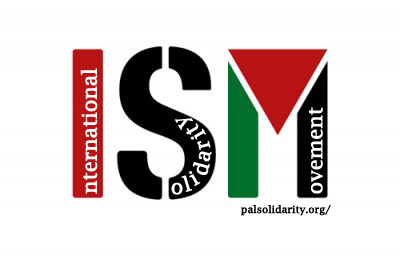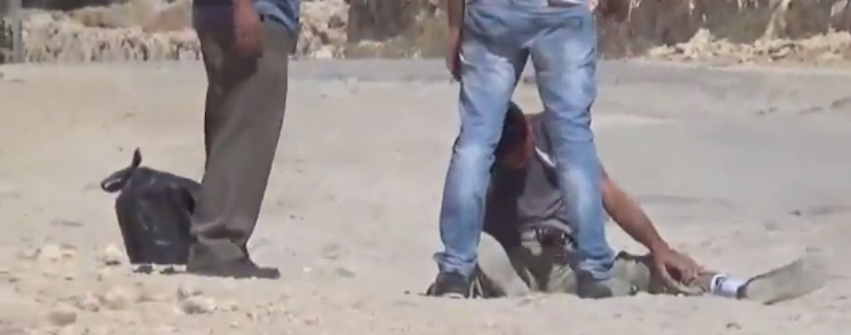-
Action alert: Join ISM
16th August 2014 | International Solidarity Movement | Occupied Palestine The International Solidarity Movement (ISM) is placing a call out for volunteers to join us in the West Bank now, and for the olive harvest beginning in October. We need solidarity activists to support the Palestinian popular struggle by joining protests and demonstrations, to document and report on the crimes […]
-
Israeli police beat a Palestinian and confiscated his tractor
13th August 2014 | Operation Dove | at-Tuwani, Occupied Palestine On August 12th, at approximately 9.45 a.m., near the South Hebron hills area village of at-Tuwani, Israeli Police beat a Palestinian and confiscated his tractor. The 20-year-old man was driving his tractor, carrying a water tank, from the village of at-Tuwani to Yatta City when the Israeli police […]
-
Video: Israeli soldiers celebrate shooting an 18-year-old
12th August 2014 | International Solidarity Movement | Hebron, Occupied Palestine On August 9th in Hebron, Israeli soldiers celebrated shooting an 18-year-old Palestinian youth in the leg with live ammunition. The Canadian volunteer, Vern, who witnessed the soldier firing, stated, “After the soldiers left the roof, I went to confront them about why they had fired. One […]
Action Alert An Nabi Saleh Apartheid Wall Arrests BDS Bethlehem Bil'in Cast Lead Demonstration Denial of Entry Ethnic Cleansing Farmers Gaza Global Actions Hebron House Demolition International law Israeli Army Jerusalem Live Ammunition Nablus Ni'lin Prisoner Ramallah Rubber-coated steel bullets Settlement Settlers Settler violence Tear-Gas Canister Video



